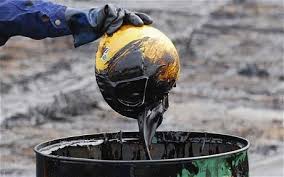By Mark Baber
January 15 – Oil has dipped below $30 a barrel for third day in a row and, with oversupply likely to be exacerbated as Iran enters the market, low oil prices look here to stay. This will have quite dramatic economic consequences across the globe, from which the business of football is not immune.
The main reasons behind the oil price drop are principally weak economic demand in many countries due to falls in the rate of economic growth (notably in China) coupled with surging US domestic production and the reluctance of OPEC (in particular Saudi Arabia) to reduce production. With sanctions being lifted, Iran will soon start pumping oil again and the Saudis may be even less willing to cut production, leading to forecasts of $20 a barrel.
Obvious potential losers in this situation are football clubs owned by or sponsored directly by oil interests and clubs such as Chelsea, Schalke 04 and Red Star Belgrade, all sponsored by Russian oil giant Gazprom, immediately spring to mind. However, there is no doubt Gazprom will remain a massive company, however low the price falls, and it seems unlikely its strategic sponsorships in the UEFA Champions League is under any real threat. Arsenal, Chelsea and Manchester City all have owners who have made their money through the oil industry but the investments look safe.
Qatar, of course, is funding the 2022 World Cup including $200 billion of new infrastructure through oil and gas revenues, but has a considerable sovereign wealth fund to cushion the effects of the prise slump.
The 2014 World Cup in Brazil was notable in that it featured a large number of low or middle income countries which are “resource-dependent” according to IMF criteria. These countries include oil-producers such as Ghana, Algeria, Iran, Mexico, Nigeria and Ecuador where it has been suggested authoritarian rule (which oil and mineral wealth tends to encourage) prioritises investment in football as a source of prestige. Some of these countries will certainly be less able to invest in football as their oil revenues fall.
Those who stand to benefit most from oil price falls include the airline industry, although some of the biggest football sponsors are from the Gulf region including Emirates, Qatar Airways and Etihad. Countries who are major energy importers (Germany, Japan, China) should benefit along with consumers (particularly those who drive to work.) This could have some positive knock-on effects for football as consumers will have more disposable income and economic growth gets a significant boost (even in the UK the GDP-effect of the low prices has been estimated at +0.5%).
In conclusion, the winners and losers as far as individual clubs are concerned are very hard to predict, particularly as oil and energy investments are ubiquitous. What we can say with some degree of certainty is that a general shift in the balance of power between oil producers and importers may have some knock-on effects on football, more disposable income for consumers should translate into more spending on football, and Germany are likely to continue winning the world cup.
Contact the writer of this story at moc.l1751595902labto1751595902ofdlr1751595902owedi1751595902sni@r1751595902ebab.1751595902kram1751595902

